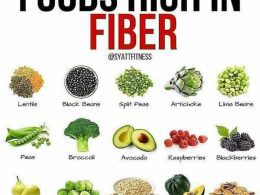The world of food is undergoing a transformation, and it’s green. Plant-based eating is on the rise, and it’s not just a passing trend; it’s a full-blown revolution. From innovative plant-based products to the proliferation of vegetarian and vegan options in mainstream restaurants, this article will explore the driving forces behind the plant-based revolution and its impact on our plates and the planet.
The Rise of Plant-Based Eating
Plant-based eating, once a niche concept, has gained massive popularity in recent years. What’s driving this shift in our diets?
- Health Consciousness: As more people prioritize their health, plant-based diets have become a go-to choice. Research suggests that plant-based diets can reduce the risk of chronic diseases and promote overall well-being.
- Environmental Concerns: The link between meat consumption and environmental degradation is well-established. Concerns about climate change and sustainability have prompted many to adopt plant-based diets as a more eco-friendly choice.
- Ethical Considerations: Animal welfare is a central concern for many individuals. Plant-based diets align with ethical choices, promoting a lifestyle that avoids animal exploitation.
- Innovative Products: The food industry has responded to the demand for plant-based options by creating a wide range of innovative and delicious plant-based products.

https://seizeyourlifetoday.com/wp-content/uploads/2020/05/Canva-Woman-using-dieting-app-on-phone.jpg
The Plant-Based Product Boom
Innovation in the food industry has given rise to an incredible array of plant-based products that are changing the way we eat. These products offer incredible flavor, texture, and variety:
- Plant-Based Meat: Burgers, sausages, and meatballs made from plants have exploded in popularity. Companies like Beyond Meat and Impossible Foods have made headlines with their remarkably meat-like products.
- Dairy Alternatives: Plant-based milk, cheese, yogurt, and even ice cream have become widely available. Almond, soy, oat, and coconut milk are common choices.
- Plant-Based Seafood: Companies are introducing plant-based seafood options that mimic the texture and flavor of fish without harming the oceans.
- Egg Substitutes: Products like “Just Egg” offer a plant-based alternative to traditional eggs, allowing people to enjoy their favorite egg-based dishes without using animal products.
- Plant-Based Desserts: From creamy plant-based cheesecakes to dairy-free ice cream, dessert lovers are indulging in delicious plant-based options.
Mainstream Restaurants Embrace Plant-Based
The rise of plant-based eating is not limited to home cooking; it’s also infiltrating restaurants. Mainstream dining establishments are increasingly offering vegetarian and vegan options:
- Chain Restaurants: Major restaurant chains are including plant-based dishes on their menus. Whether it’s plant-based burgers at fast-food joints or vegan pizza at popular pizzerias, plant-based options are becoming the norm.
- Fine Dining: Even high-end restaurants are getting creative with plant-based tasting menus and intricate plant-based dishes that rival their meat-based counterparts.
- Food Trucks: Street food vendors and food trucks are embracing the trend with plant-based options, catering to the diverse tastes of their customers.
- Fast Casual: Quick and casual eateries are offering customizable plant-based bowls, sandwiches, and salads, allowing diners to create their ideal plant-based meal.
The Environmental Impact
Plant-based eating isn’t just about personal health and culinary innovation; it’s also about saving the planet. The environmental benefits of plant-based diets are profound:
- Reduced Carbon Footprint: Animal agriculture is a leading contributor to greenhouse gas emissions. By reducing meat and dairy consumption, we can lower our individual carbon footprint.
- Conservation of Resources: Plant-based diets require fewer resources like water, land, and energy. This reduces the strain on our planet’s ecosystems.
- Preservation of Biodiversity: Plant-based diets help preserve biodiversity by reducing habitat destruction associated with livestock farming.
The Future of Food
The plant-based revolution is not slowing down; it’s evolving. What can we expect in the future?
- More Innovative Products: As technology advances, we can anticipate even more realistic plant-based meat, dairy, and seafood products.
- Wider Availability: Plant-based options will continue to become more widely available, including in regions where they’re currently less common.
- Sustainability Focus: The food industry will continue to emphasize sustainability, ensuring that plant-based choices are eco-friendly.
- Plant-Based Communities: Plant-based communities and events, such as Veganuary and Meatless Monday, will continue to grow, fostering a sense of shared purpose and culinary exploration.

https://travel.home.sndimg.com/content/dam/images/travel/fullrights/2018/2/6/0/CI_Evan_Sung_Dirt_Candy_Plant_Based_Restaurants.jpg.rend.hgtvcom.616.411.suffix/1517939324534.jpeg
In Conclusion: A Plant-Powered World
The plant-based revolution is here to stay, driven by health consciousness, ethical considerations, and a wave of innovative plant-based products. As more mainstream restaurants embrace plant-based options, and environmental concerns prompt us to reduce our carbon footprint, it’s clear that plant-based eating is transforming the future of food. Whether you’re a committed vegan, a curious flexitarian, or simply someone looking to enjoy a delicious and sustainable meal, the plant-based revolution offers something for everyone, making our world a greener and healthier place, one bite at a time.












